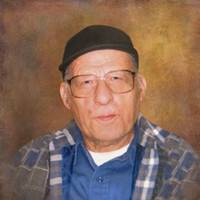Written by Jerry Graham

Hoge Tyler Tabor Jr. was born in a coal camp in Itmann, West Virginia. Coal was king. A miner worked for a coal company, lived in company-owned housing, and paid in company scrip that was only good at the company store.
Mining was very dangerous. Cave ins, lack of oxygen, explosions, and the dreaded “black lung disease” were terrible hazards. Raised in this harsh and unforgiving place, Hoge Tabor graduated high school at 17 years old. Soon after graduating, with World War 2 raging, Hoge joined the US Navy. He was assigned to a destroyer, DD652 US Ingersoll. He was involved in many fierce battles, including Leyte Gulf, with a formidable Imperial Japanese foe. Hoge was in Tokyo Bay on September 2, 1945, when McArthur accepted the unconditional surrender of Japan and its occupation.
Soon after being discharged from the Navy in 1946, Hoge was raised to the sublime degree of Master Mason at the age of 21. For 70 years there after, he walked and acted as such.
By the 1950s, Hoge worked at the Goodyear Atomic in Waverly, Ohio. This facility, among others, converted uranium ore into weapons-grade, highly radioactive plutonium for nuclear bombs. After being told by companies and countries that handling radioactive material was safe, a fellow worker was exposed to this toxic material and died shortly thereafter. Union officers, instead of lawyers, represented workers in worker compensation cases, which was common practice in the 1950s. Union Officer Hoge Tabor, along with the help of Gregory Stebbins, won the 1st radiation poisoning case in history. This changed the world.
Hoge spent his entire working life holding various union offices, including steward, lodging committee, local president, and representative to international. His selfless service to his fellow workers sometimes resulted in being assigned the most dangerous and difficult jobs as a reprisal.
In addition to serving his country and fellow workers, he went out of his way to mentor, to help friends, family, and anyone he encountered. He lived and practiced his obligation as a Master Mason.
Hoge’s most generous act was marrying a widow with 5 children. Myself being the youngest of those 5, I received many examples of what it means to be a Master Mason. I learned to have the utmost respect for Masonry, service to my country, and service to all of humanity. Many examples of which are present and alive at Mason Lodge #678.